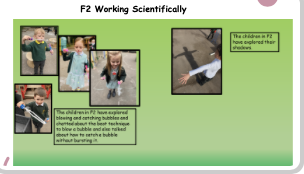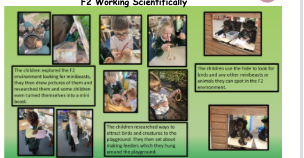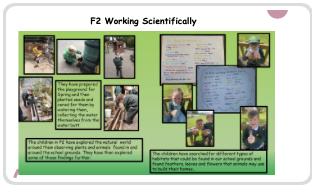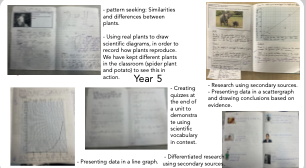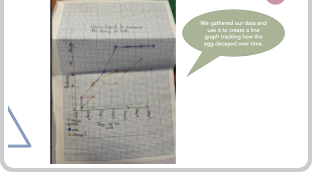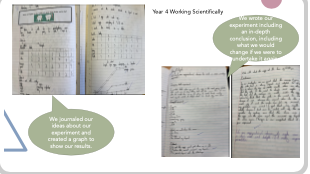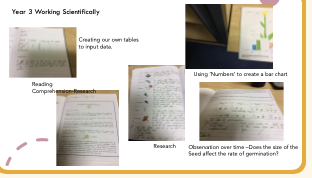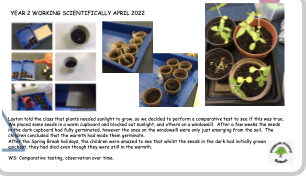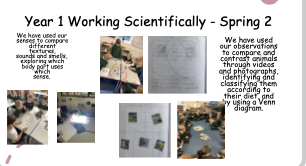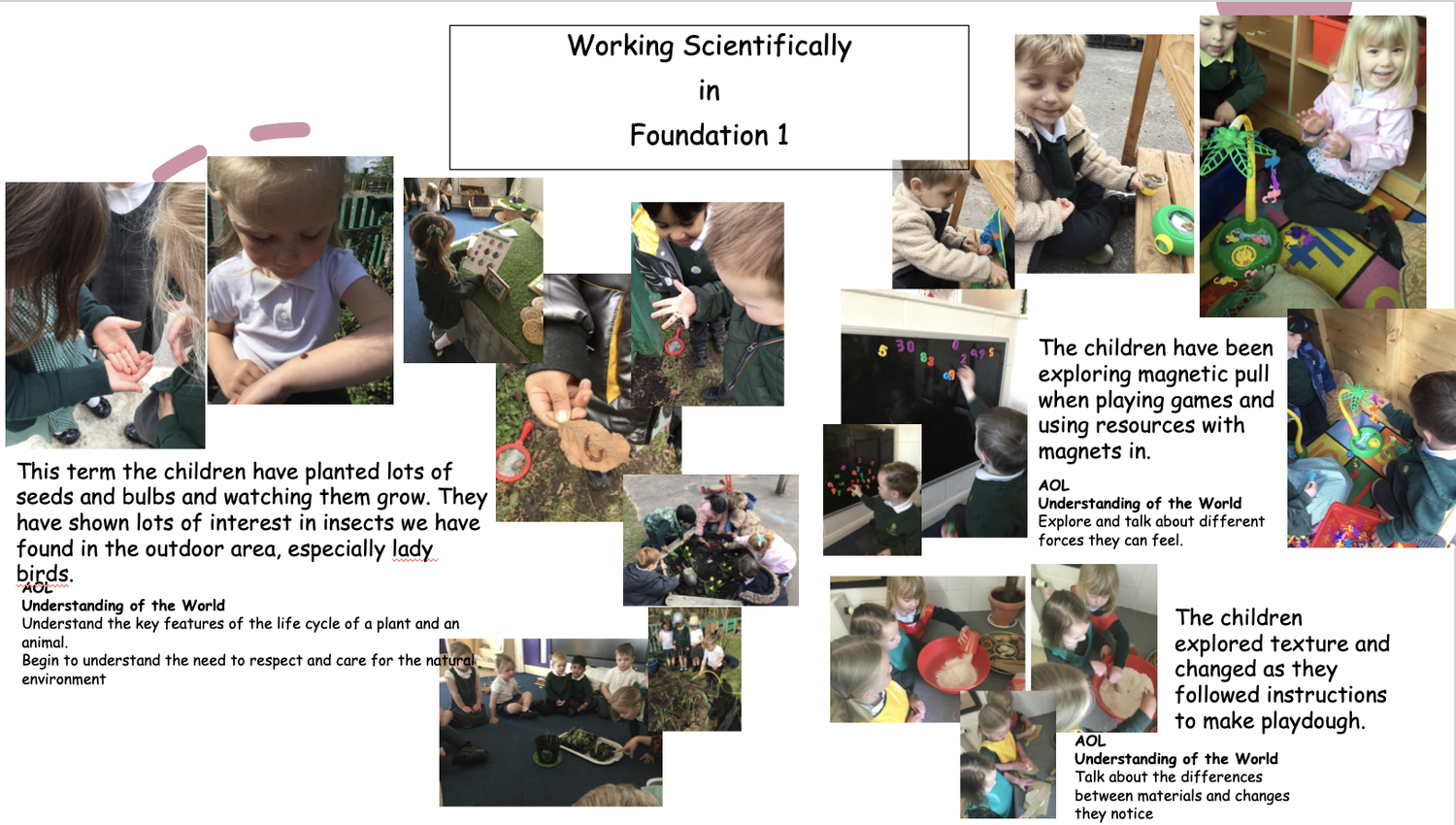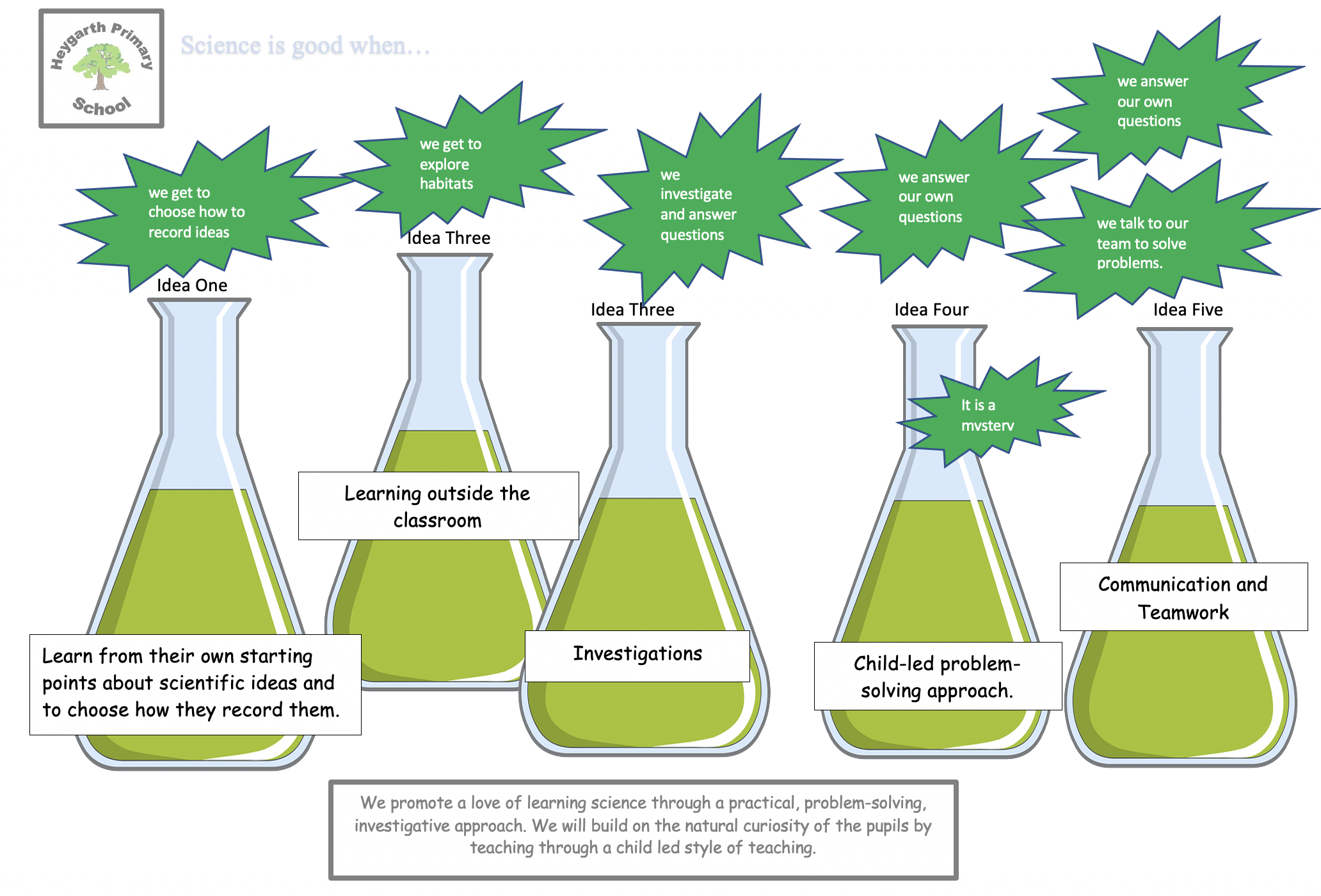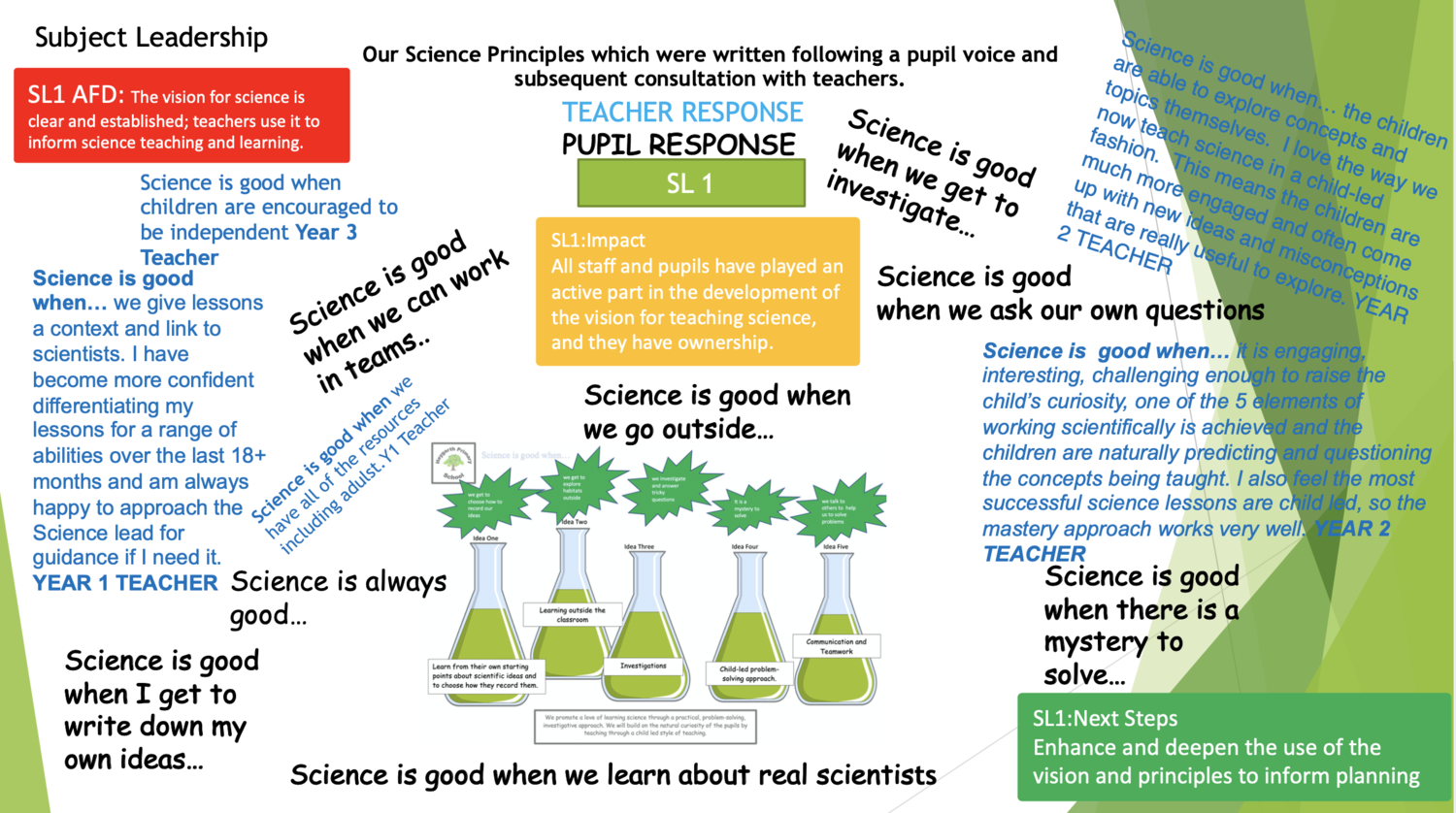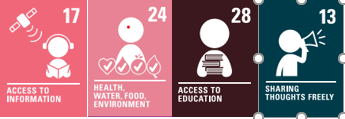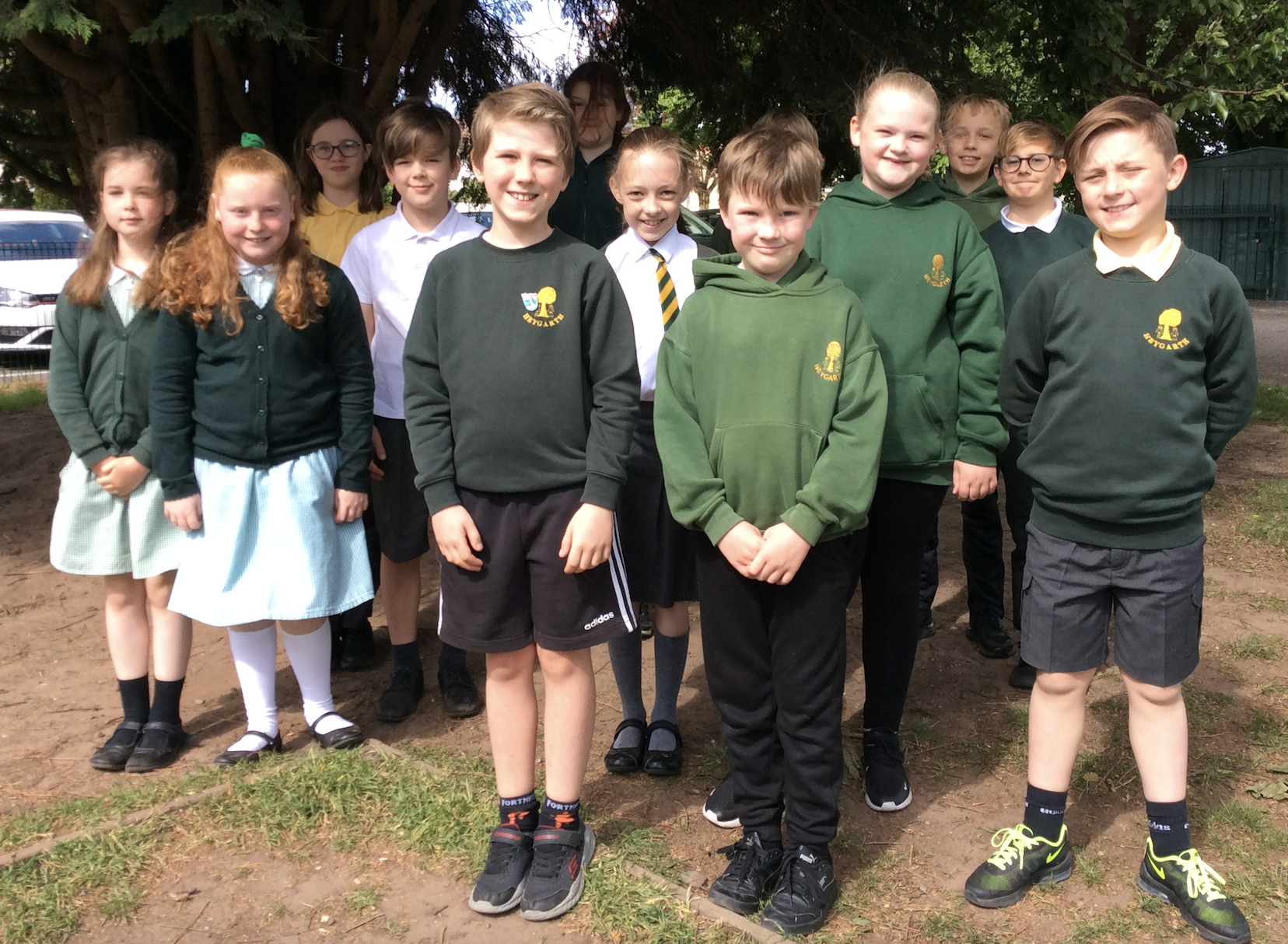
Science
(Photo: our Science Ambassadors)
Science
"The most beautiful thing we can experience is the mysterious. It is the source of all true art and science"
- Albert Einstein
-
Mrs R Griffin
-
At Heygarth Primary School, we strive to promote the love of learning science and for children to understand and be curious about the science within their everyday lives. Science provides the foundations for understanding the world through the specific disciplines of biology, chemistry and physics. We promote the importance of a problem solving, investigative approach through regular 'hands on' experiences wherever possible. It is our intention that by the end of each Key Stage, each child will have an understanding of a variety of scientific concepts and be able to confidently discuss and transfer knowledge across subjects and in their individual lives. We aim for all children to gain independence and work scientifically during lessons as well as working collaboratively to investigate different concepts and ideas.
Through building up a body of key foundational knowledge and concepts in science,
our children will be encouraged to recognise the power of rational explanation and develop a sense of excitement and curiosity about natural phenomena. They will be encouraged to understand how science can be used to explain what is occurring, predict how things will behave, and analyse causes. We know that we are doing our children a disservice if we do not both provide them with opportunities to explore scientific vocabulary and we will expect them to use the knowledge and skills to articulate their ideas in a variety of ways.
-
Why has the specific content/ domain knowledge been selected? The core knowledge has been chosen to aid children's understanding of the of Science in Physics, Chemistry, Biology and Earth Science and has been taken from the National Curriculum. Threads of Working Scientifically have also been selected as an integral part of delivering subject content. Disciplinary Knowledge include observing over time, pattern seeking, identifying and classifying, comparative testing, fair testing and research. Across a term/year, pupils learn subject content in different ways to develop Working Scientifically. Scientific vocabulary is taught explicitly to allow all learners equal access to lessons. Why is it taught in the order that it is? We introduce substantive knowledge as ideas through looking at and challenging common age-appropriate misconceptions. Core knowledge is taught in a progressive way throughout Key Stages 1 and 2, with many content domains being re-visited, allowing pupils to retrieve knowledge they have previously learned and build on this to gain a deeper understanding of the topic and grapple with more complex ideas, as well as make their own predictions based on their existing scientific understanding. The disciplinary knowledge is taught according to the age and ability in mathematics and is progressive from Year 1 to Year 6. How are Science lessons delivered at Heygarth? All lessons start with an opportunity to revisit prior learning as part of Assessment for Learning. We use PLAN Assessment materials to support with planning. All lesson plans include a relevant scientist, prior learning, future learning and key vocabulary. Teachers create a positive attitude to science learning within their classrooms and reinforce an expectation that all children can achieve high standards in science. Our whole school approach to the teaching and learning of science involves the following: Through our planning, we involve problem solving opportunities that allow children to find out for themselves. Children are encouraged to ask their own questions and be given opportunities to use their scientific skills and research to discover the answers. This curiosity is celebrated within the classroom and pupils are encouraged to ‘wonder’ and question. Teachers use ‘Thinking out loud’ for precise prompts for deeper thinking and questioning in class to test conceptual knowledge and skills. We build upon the learning and skill development of the previous years. As the children’s knowledge and understanding increases, and they become more proficient in selecting, using scientific equipment, collating, and interpreting results, they become increasingly confident in their growing ability to come to conclusions based on real evidence. Teachers demonstrate how to use scientific equipment, and the various Working Scientifically skills in order to embed scientific understanding.
-
Children not only acquire the appropriate age-related knowledge linked to the science curriculum, but also skills which equip them to progress from their starting points, and within their everyday lives. By the end of Key Stage 2, children have: A wider variety of skills linked to both scientific knowledge and understanding, and scientific enquiry/investigative skills. A richer vocabulary which will enable to articulate their understanding of taught concepts. High aspirations, which will see them through to further study, work and a successful adult life.
-
How can you support your children in science?
Some links below with ideas of games and ideas to help you support your child. The most important thing is to get them thinking scientifically – asking questions and being curious about the world. Talk to them about science in your homes and in the media. If you need any further support, please let me know.
-
Some fun links and games that will help support and extend your learning. If you find any more please let us know!
Science games
http://www.sciencekids.co.nz/gamesactivities.html
Newsround science
http://www.bbc.co.uk/newsround/15743115
KS2 link
http://www.bbc.co.uk/education/highlights/curations/z9njqty
KS1 link
